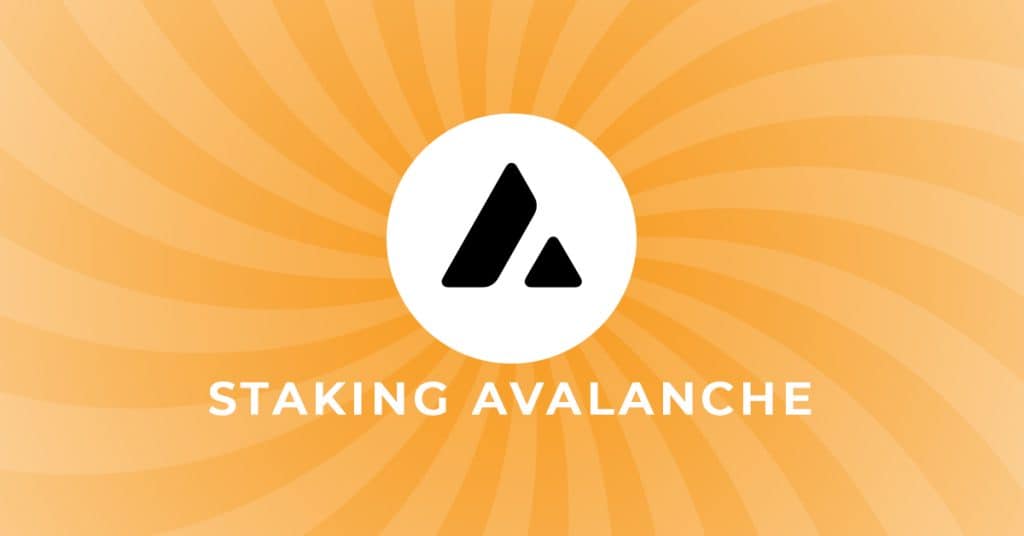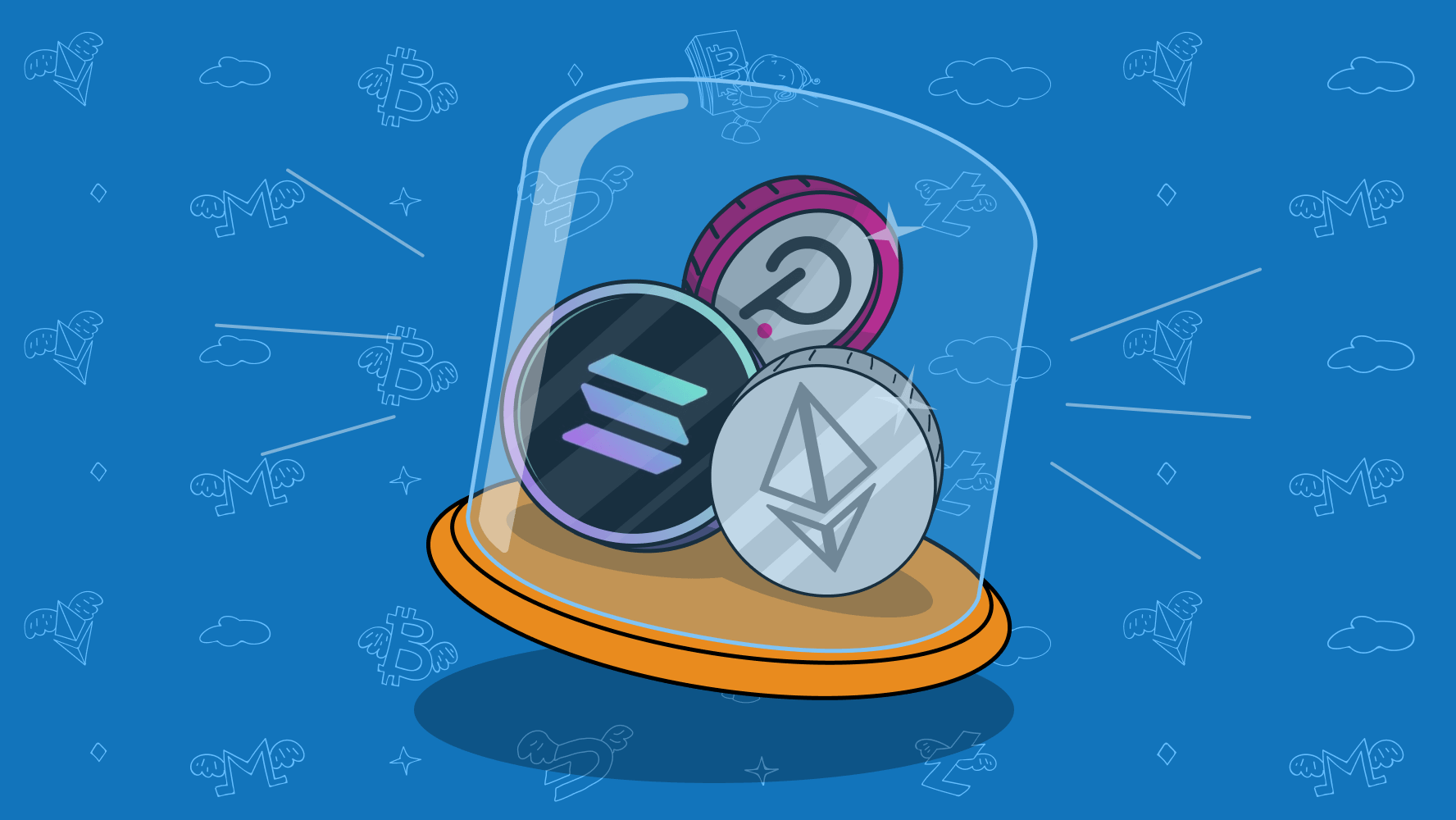Crypto Guide: How Staking on Avalanche Works

Avalanche is a popular blockchain alternative to Ethereum, with AVAX as its native token. Like Ethereum, it's also possible to stake tokens at the Avalanche blockchain and get rewards in return. Just run an Avalanche node, stake your AVAX tokens, and earn your rewards.
Avalanche is one of the leading alternative blockchain projects to Ethereum. It works as a smart contracts platform that's highly scalable which promises to complete transactions in less than one second. As an open-source platform, Avalanche allows developers to create and launch powerful and custom blockchain solutions. It works using an Avalanche® consensus protocol, a modified Proof-of-Stake (PoS) consensus mechanism, which allows thousands of validators to have a say in the management and direction of the system while using minimal energy.
In a blog post, Avalanche describes its consensus mechanism as having "high throughput, parallelizability, and the ability to efficiently prune the blockchain". Avalanche offers a novel consensus mechanism which aims to address the limitations of the traditional consensus mechanisms such as the Proof of Stake (PoS) and the Proof of Work (PoW).
While it's not directly using the traditional PoS consensus mechanism, staking is still possible at the Avalanche blockchain. If you're an AVAX holder, you can also earn incentives through staking and helping secure the Avalanche blockchain.
Staking your AVAX

The Avalanche blockchain offers an attractive staking program for its holders. As of this writing, the blockchain boasts a total stake of 247.602,350, with 201,8666,319 as validation stake, and the rest as delegated stake. There are 1,724 validators on the platform, with an Annual Percentage Yield (APY) of 7.60%.
What's interesting about the Avalanche blockchain is that it provides potential validators with tools and resources that can help navigate the often-complex work of staking. For example, its official website boasts a Staking Calculator that computes for the potential Daily, Monthly, and Yearly rewards. For example, by staking 100 AVAX at current APY, you can earn a daily reward of 0.02 AVAX, which becomes 7.27 AVAX annually, which translates to $212.79 at current prices, at the time of this posting.
In addition to the Staking Calculator, its official website also boasts FAQs on important terms and concepts that you'll encounter once you decide to stake and become a validator.
What is an AVAX validator?
A validator is the person or groups responsible for verifying transactions on a blockchain. In the Avalanche blockchain, the validators get rewards if they stake their AVAX tokens and correctly participate in the network. By staking tokens, holders help secure the network, and participate in making decisions, and setting the direction of the project.
Staking at Avalanche is open to all holders who satisfy the minimum qualifications and requirements to become a validation. For a start, the interested holder must stake a minimum of 2,000 AVAX to become a validator. Also, there's the minimum hardware requirement to participate in the staking and decision-making process.
Avalanche is a lightweight protocol, but also requires PCs to meet the minimum qualifications for notes to work. Here's a look at the requirements as published on its website:
- CPU: Equivalent of 8 AWS vCPU
- RAM: 16 GiB
- Storage: 1 TiB
- OS: Ubuntu 20.04 or MacOS >= 12
- Network: sustained 5Mbps up/down bandwidth
Note that the hardware requirements will scale depending on the amount of AVAX tokens that you'll stake on the node, or your network activities. For example, if you're going to stake at least 100k AVAX tokens, then you'll need powerful machines with a bigger bandwidth.
Validation and Delegation- Two ways to stake and earn AVAX incentives
There are two ways on how to stake your AVAX tokens and earn rewards: through validation and delegation. Let's take a look at the primary differences between these two below.
Validation
In the Avalanche network, validation means running a node on the blockchain network to verify transactions and secure the network. Here, you'll need to stake a minimum of 2,000 AVAX tokens on the Mainnet (1 AVAX on the Fuji Testnet). Fuji is the blockchain's test network where developers can test their smart contracts and dApps after developing these locally.
As a validator, you can help achieve consensus through repeated sampling of other validators. The probability of being sampled is dependent on the staked tokens so the more tokens you stake, the more influential you become in the consensus process. As a validator, you'll get incentives of up to 7.60%, but you must be online and responsive for at least 80% of the validation period.
Delegation
Another way to stake tokens and join the consensus process is to delegate your coins. By delegating your tokens, you don't directly run your validator node, but delegate it to another validator with an existing node. This option is much more convenient for beginners or those with '"small amount" of AVAX tokens since the minimum requirement to delegate is just 25 AVAX tokens.
If you plan to delegate, you'll need to choose a specific validator node and trusting this validator to behave correctly and secure the blockchain on your behalf. Delegators also earn incentives for participating in the process, but these are subject to the validator's delegation fee rate.
So, should you validate or just delegate your AVAX?
There are key differences between validation and delegation and it's best to know these before you stake your tokens. If you decide to become an Avalanche validator, you'll need to prepare for some crucial responsibilities and requirements.
As a validator, you're tasked to run a note, validate transactions, and actively secure the network, which definitely require some technical skills. Also, there's a higher stake requirement to be a validator, which is at least 2,000 AVAX tokens. But when you decide to become one, you'll get better rewards, at 7.60% APY. Finally, you can also get a cut if you're selected by a delegator through the delegation fee rate.
But if you're a beginner, and don't have the appropriate skills or equipment to run a node, then you can start by delegating your tokens. As a delegator, you can earn a passive income through staking, and you're not directly concerned with the verification of transactions. You'll just hold and stake your AVAX, help secure the network, and also earn some incentives.


